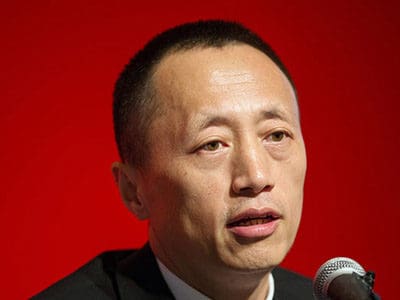
Vanke chairman Yu Liang may have been staying up late checking his spreadsheets this month
China Vanke is purchasing 4.9 percent of Cushman & Wakefield as the Chicago-based real estate service company prepares for an IPO this week which is expected to raise $719 million.
The approximately $166.7 million investment by China’s third-largest developer by sales would give the mainland real estate giant a significant stake in one of the world’s three largest property brokerages as Vanke continues to diversify beyond its roots as a leading homebuilder for the country’s middle class.
The IPO and private placement come just three years after Cushman & Wakefield was acquired by a private equity group that also includes Hong Kong-based PAG and following a rapid increase in leverage. Funds from the share sales will be used to pay down some of that debt, which totalled $3.1 billion as of 31 March.
Cushman & Wakefield disclosed the China Vanke private placement in an S-1/A filing to the SEC dated 25 July.
Cushman Hopes to Cooperate with Vanke in Greater China After IPO
In the private placement, Cushman & Wakefield will sell approximately 10.2 million shares to Vanke Service (HongKong), at the IPO price, which is expected to be between $16 t0 $18 per share. The share sale adds around $166.7 million on top of Cushman’s expected take from the public offering. Following the transaction, Vanke Service would be subject to stock-sale restrictions.
The IPO itself involves the sale of 45 million shares and proceeds of approximately $719.3 million. Of the funds raised, $600 million will go towards paying down debt and other obligations.
In its statement to the SEC, Cushman & Wakefield that the company, together with Vanke “plan to discuss possible opportunities related to our respective businesses in the Greater China Region.”
It is expected that the shares will start trading on 2 August under the ticker ‘CWK’ on the New York Stock Exchange.
After the IPO and private placement are completed, a private equity group will maintain control the company, with 66.16 percent of the shares. The group is includes PAG Asia Capital (37.33 percent), TPG Funds (49.63 percent) and the Ontario Teachers’ Pension Plan Board (13.04 percent). Those buying into the initial offering will own 21.6 percent of the post-transaction entity while management and others will own 7.34 percent.
Increase in Debt Following Takeover

Brett White is adding Vanke to his investors just before the IPO
Cushman & Wakefield, which was founded in 1917, has 400 offices in 70 countries and manages more than 3.5 billion square feet of commercial real estate on behalf of clients. With $6.9 billion in revenues, it is ranked third in the sector after CBRE and JLL.
The company was acquired by DTZ in 2015 for $2 billion. DTZ, which had purchased Washington, DC-based Cassidy Turley at the end of 2014 for $557 million, then took on the Cushman & Wakefield name. Since the acquisition, the company has not been profitable. Cushman & Wakefield has run losses for the past three full years and in the first quarter of 2018. Debt increased from $2.33 billion in 2015 to $3.07 billion in the first quarter of 2018.
Cushman and Wakefield’s IPO comes less than a year after a weak IPO by Newmark Knight Frank. That property company had to reduce the price of the offering and sell fewer shares than hoped.
Vanke Adds Stake in Service Company to Domestic and Intl Projects
Shenzhen and Hong Kong-listed China Vanke is China’s third largest property developer by sales (behind Country Garden and China Evergrande) and has a market capitalisation of RMB255 billion ($37 billion). It is number 332 on the Fortune Global 500, has purchased major assets in London and in 2013 formed a venture with Tishman Speyer to develop a residential project in San Francisco.
In June 2017, the Shenzhen Metro Group became the company’s largest shareholder, with 29.38 percent of the stock. BlackRock has been an investor in Vanke.
While the company has not faced the troubles of peers such as HNA, China Vanke did go through a bruising takeover battle and has been hit by negative sentiment and official cooling measures. Since peaking at HKD42.20 in January 2018, its shares have declined more than 40 percent.
Leave a Reply